

Did you know that air cargo services are secretly reshaping the landscape of global trade? This sector is an unsung hero, crucial for economies worldwide, yet its importance often goes unnoticed. But what if I told you there's more beneath the surface?
As we grapple with globalization and rapidly shifting demand, the role of air cargo services has never been more vital. It's not just about speed; it's about how this industry quietly powers economies, with impacts reaching far beyond what you might expect.
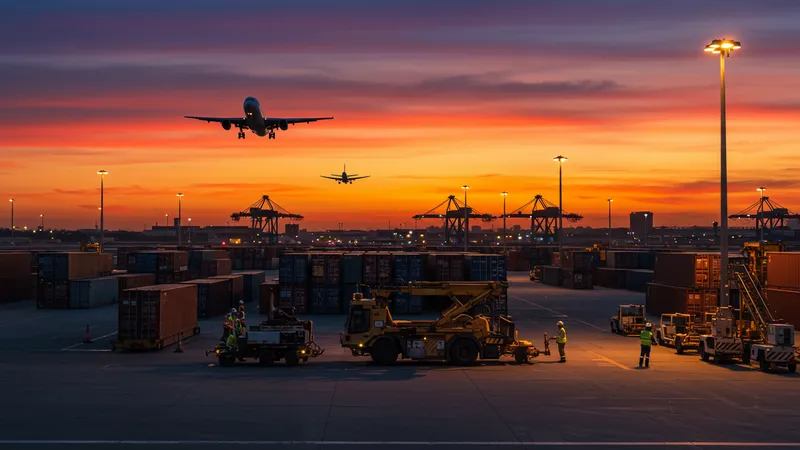
Shockingly, did you know that air cargo represents over 35% of world trade by value? Despite representing only a tiny fraction of total trade volume, it's the value that speaks volumes. Air cargo services are not just carriers; they are silent enablers of opulence—ensuring that when luxury goods need to span oceans, it’s a matter of hours, not weeks. But that's not even the wildest part...
Consider advancements like temperature-controlled shipments that maintain the integrity of sensitive goods. Air cargo services keep pharmaceuticals potent and bouquets fresh, a feat unimaginable a few decades ago. Just hold on tight because the full spectrum of air cargo's abilities is yet to be revealed...
What happens next shocked even the experts, pushing air cargo into realms of innovation that redefine logistics. How does this service stealthily influence what and when you purchase? What secrets linger in the hangars of airports worldwide, altering the buying narratives of billions? Discover the jaw-dropping details in what follows…
Air cargo services are celebrated for speed, yet their efficiency often goes unnoticed. Efforts to minimize delays begin even before goods arrive at the airport. Seamless integration with other transport modes ensures that what's shipped isn't just fast but optimized for the quickest distribution path. But there's one more twist...
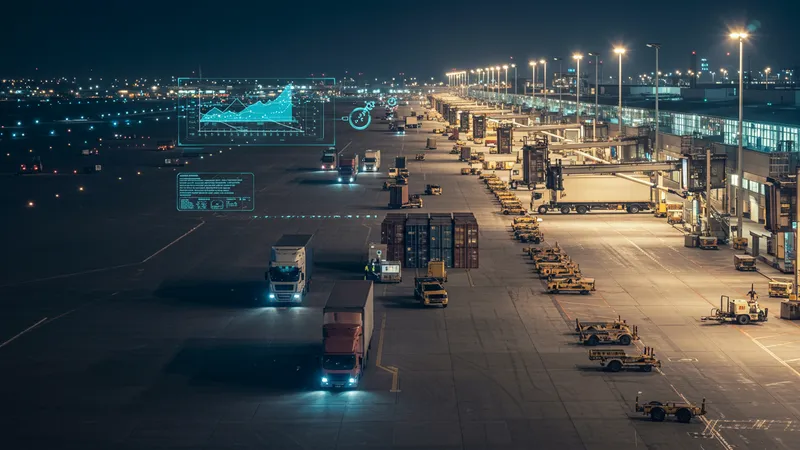
Real-time tracking has revolutionized not just air cargo operations but the entire supply chain ecosystem. This keeps accountability high and increases transparency for businesses that depend on precision. The impact of these technologies goes beyond logistical benefits—it's transforming customer expectations and setting new standards. What you read next might change how you see this forever.
Remarkably, air cargo advancements have slashed transit times, helping companies retain competitive edges. Imagine reducing downtime with a streamlined inventory turnover, turning what was once a cost sink into an asset. The magic doesn’t stop here; wait until you uncover how this boosts economies more than you'd expect.
Ever thought about the environmental impact? With increased efficiency, there's a lesser footprint per shipment than conventional cargo. Yet, the surprise lies in how green initiatives within air cargo are setting models for global logistics. At every height, air cargo services are proving to be pioneers, reshaping global environmental strategies.
Air cargo services are pivotal economic players often overlooked. While providing rapid transit for high-value goods, they play a complex role in making markets more accessible and products more affordable. Consumers enjoy an abundance of choices due to streamlined logistics, but there's much more beneath this surface.
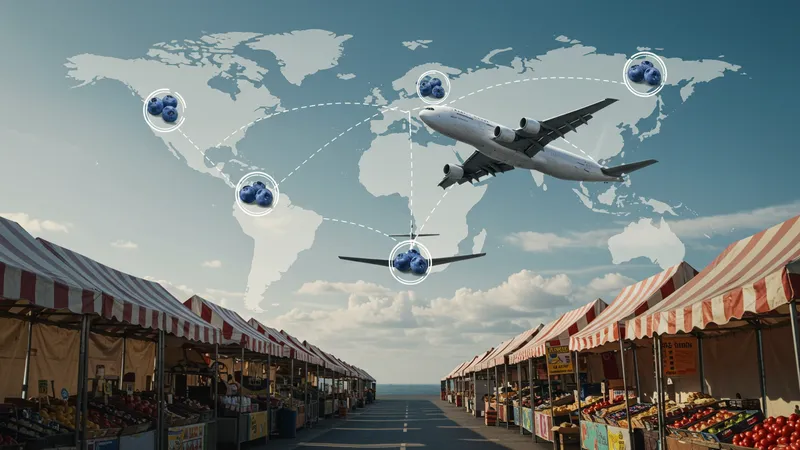
By connecting remote and developing areas, air cargo helps local economies by opening doors to new trade opportunities. This invisible hand helps level the playing field, promoting economic growth. The implications are staggering: a small farm in Chile can feasibly export blueberries to Japan, bridging economic divides like never before.
Global trade demands are no longer limited by borders nor defined by vast distances, thanks to air cargo services. As they break logistical barriers, new trade routes emerge, contributing to economic diversity. This proliferation of choices isn't just about consumer benefit; it's about fostering cultural exchange, one aircraft at a time.
Venturing further, these services innovate by investing in technologies reducing operational costs. The transformation in infrastructure requirements has a domino effect, reducing overhead and ultimately consumer prices. What lies beyond this enhanced efficiency is a mystery we are just beginning to unravel.
You might be unaware of how air cargo touches your daily routine in unexpected ways. Whether enjoying fresh-cut flowers or artisan cheeses, these indulgences reach your fingertips thanks to efficient air cargo networks. It's an unseen orchestration of precision and technology, enhancing life’s luxuries.

Consider services like chilled logistics, preserving perishables with unprecedented efficiency. The result is a retail landscape brimming with freshness previously unimaginable. This isn’t just about access; it’s about improving quality of life. And there's yet more to unfold from this narrative...
Air cargo reshapes shopping habits and influences consumer behavior behind the scenes. By shortening delivery timeframes, it's birthed an era of instant gratification and online shopping booms. Yet, this is only part of a larger transformation shaking the retail industry at its core.
Ever thought about your modern culinary preferences? Air cargo is revamping food availability, turning exotic ingredients into staple options. This flow has enriched cultural exploration through cuisine, spicing up our plates and lives. As we dive deeper, one might discover transformations that have only just begun.
Digital advancements have not only been game-changers but torchbearers in evolving air cargo services. Automation and AI are leading to unimaginable efficiency gains, streamlining operations with pin-point precision. Behind every seamless delivery is a story of technological triumph that can't be ignored.

AI-driven systems facilitate just-in-time operations, forecasting demand fluctuations with uncanny accuracy. The impact of this is more than scholastic; it’s in operational costs saved and waste reduced. As we probe deeper, the unfolding synergy of technology and logistics offers vast terrains of potential.
From robotics in cargo handling to blockchain ensuring integrity across the supply chain, technological adoptions in air cargo have been swift and significant. The transparency that technology affords is not just transformative; it’s creating new jurisdictions of trust. The narrative spins tantalizing threads that beckon further inquiry.
The convergence of these elements forms a logistics revolution; air cargo's digitalization is redefining industry paradigms. As innovation accelerates, traditional methods are being upended. But this is just the cusp; greater revelations await those willing to explore further into this high-tech odyssey.
Security in air cargo has transcended conventional narratives, integrating global vigilance measures. With goods flying across borders, maintaining security integrity has become paramount. But did you know there are hidden layers protecting each shipment, often unbeknownst to many?
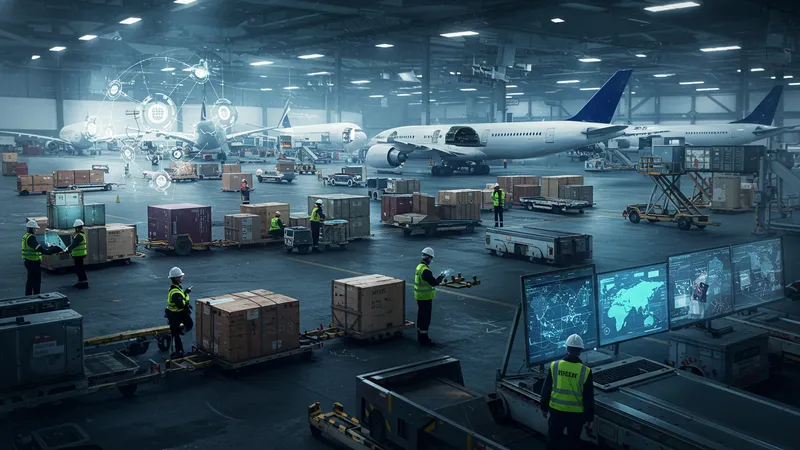
Enhanced screening technologies assure that every item passing through is secure. With global standards tightening and more comprehensive measures in place, the safety net extends far beyond the terminal. But the extent of these stalwart defenses might catch you off guard...
The mobilization of advanced tech such as biometric verification is ushering in a new security era. It’s not only revolutionizing risk management but ensuring the sanctity of goods in an era where precision matters more than ever. With every veil lifted, new depth is revealed.
Security innovations exceed beyond meeting regulations; they're trailblazing paths of trust in international trade. A fortified system invokes confidence, which isn't merely regulatory obligation but a new standard. As stories unfold, one sees how air cargo's underscored layers form the world's new protective fabric.
Air cargo services are strategically forming alliances and partnerships that transcend geographical limitations. These collaborations foster new commercial routes and expand trade networks, but hold secrets of empowerment beyond logistics—unearthing unexplored worlds of opportunity.
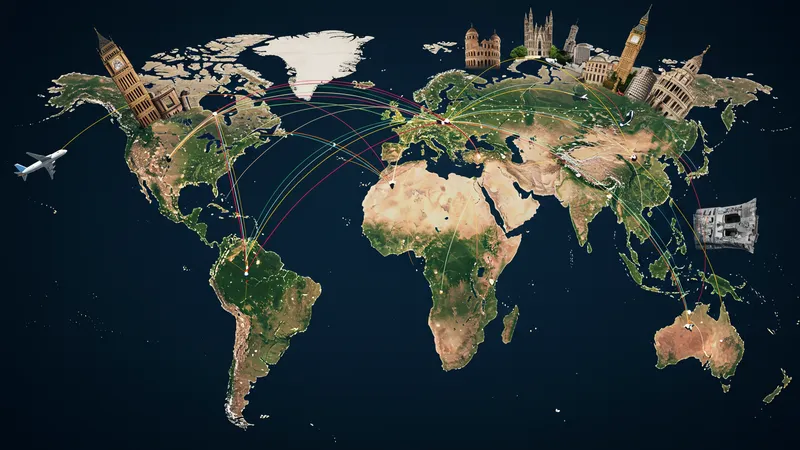
International alliances solidify diplomatic ties and support economic ecosystems, each partnership inscribing a new chapter in global growth. What you might not realize is that these consortia are often the quiet forces behind robust international economic health. There’s more intrigue to unlayer...
Collaborations mean streamlined efficiency, disrupted barriers, and newfound synergies that resonate beyond commerce. This strategy fortifies not just business-to-business relationships but scrupulously fortifies consumer trust worldwide. Yet, the stories of these alliances stretch beyond imagination.
Agreements inked at consortium tables are rewriting protocols and redefining industry standards. By embracing diversity in partnership, air cargo services are wielding innovation and resilience, reinventing how global logistics is understood. This pioneering spirit is barely scratching the surface, awaiting more revelations.
Despite its promising trajectory, the air cargo industry faces challenges that command attention. The ever-fluctuating fuel prices and stringent regulations introduce complexities that necessitate agile response strategies. Yet, these trials are merely gateways to even greater transformations.
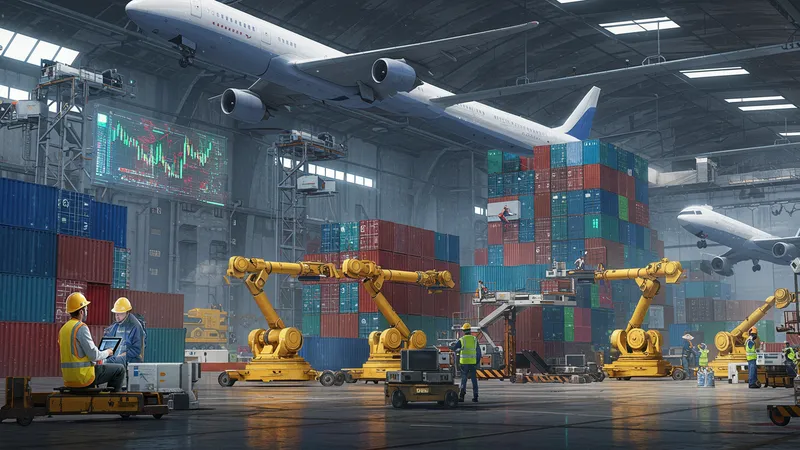
Financial burdens imposed by increasing operational expenditures demand inventive solutions. Innovators foster adaptive strategies that are not merely reactive but catalysts for systemic metamorphosis. The resultant innovations promise not just survival, but evolution—taking industry to uncharted frontiers.
Regulatory alignments, while often seen as red tape, subtly inspire enhanced standards and operational excellence. These ensure stakeholder accountability and public trust that underpins global trade. Yet, the dialogues evolving around these discussions might still catch you off-guard...
These challenges do not impede progress but provoke ingenuity, resulting in a more interconnected trade system that embraces resilience. Even as the industry clears these hurdles, the unfolding blueprint holds promises of revolutionizing logistics from the ground up, driven by inventive dynamism.
The air cargo industry stands at a fascinating intersection of innovation and environmental stewardship. Despite common beliefs about emissions, significant strides are being made towards sustainability practices that deserve recognition. Yet, the industry's green shift might leave you wondering...
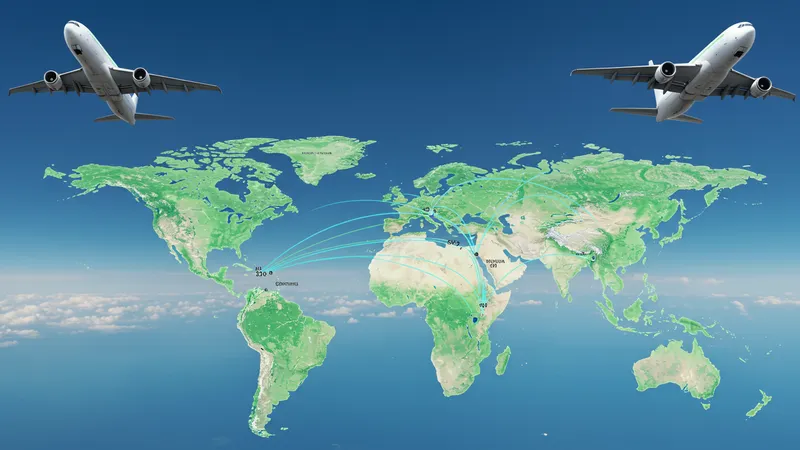
Carbon footprint reduction initiatives, including fuel-efficient aircraft and optimized flight paths, are transforming operational approaches. Every ounce of reduction saves not just costs but bolsters environmental responsibility. Yet, the magnitude of this transformation might surprise you.
Sustainable aviation fuels are increasingly embraced, seen as future-definers for air cargo. These fuels promise substantial reduction in emissions, steering the logistic panorama greenward. But what follows could redefine not just logistics, but the perception of travel itself.
Green initiatives are not just about compliance, but visionary integrations mandating responsibility. These schemes redefine benchmarks for excellence while conserving the planet, composing a symphony of sustainable fluidity that whispers of deeper secrets tucked within logistic chronicles.
Amidst technological advancements and logistical feats, the human element of air cargo remains undeniable and inspiring. The skilled personnel managing these operations are the industry's backbone, yet their stories often remain untold, hidden beneath layers of extraordinary dedication.
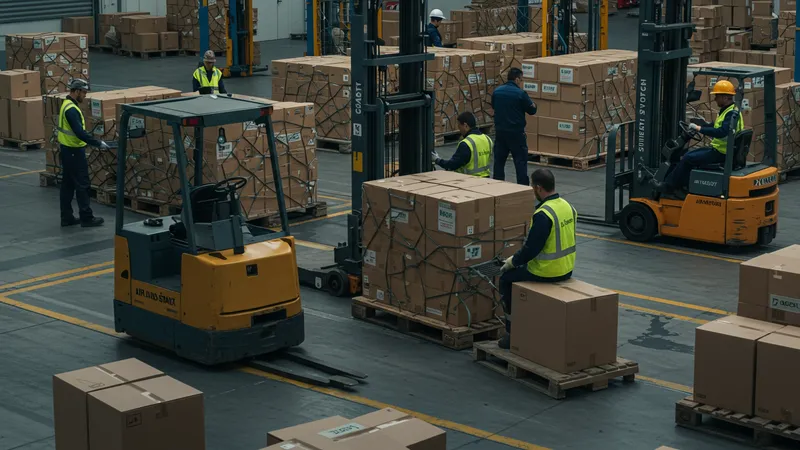
These individuals are trained meticulously, navigating unexpected circumstances with poise. As the silent sentinels maintaining the shipping orchestra, their precision ensures every detail is flawless. But what drives this dedication amidst high stakes and rapid paces?
Staff train extensively in dealing with stress, showcasing resilience as they adapt to an industry that knows no downtime. Their tales, each unique yet united in purpose, form the ferro threads holding air cargo together. However, the challenges they face are evolving, prompting further curiosity...
Their stories bring insights not just into logistics, but deeper into human potential and purpose. These tales illuminate a world beyond the tarmac that, while rarely spotlighted, defines air cargo's blueprint, encapsulating deeper truths yet to be fully explored.
Predicting the future of air cargo is a journey into unprecedented possibilities. As it stands at the junction of technology and innovation, the potential directions unfold an exciting tapestry of prospects. Yet, with every step forward lies a question of pioneering progress.

Emerging technologies like drones and autonomous aircrafts hold the promise of efficiency unmatched by current standards. While still in the speculative phase, these innovations present a future where the skies turn into fields of unharnessed opportunity. But will it meet expectations?
The merging of logistics with AI might redefine standard practices entirely. This fusion opens avenues of proactive management and strategic forecast accuracy. As these technologies emerge, logistics as we know might transform into something unrecognizable, urging us to ponder the very fabric of trade.
Yet, beyond what technology offers is an exploration into intangible values—questions of ethics and roles. How air cargo will adapt to the human elements amidst technological tools remains a captivating mystery that continues to beckon those inquisitive enough to dream beyond bounds.
Air cargo services are a critical conduit for economic health that often goes unappreciated. Its ability to bridge distances in mere hours has opened markets otherwise untapped. This revelation of hidden potential forms an economic backbone we are only beginning to fully appreciate.
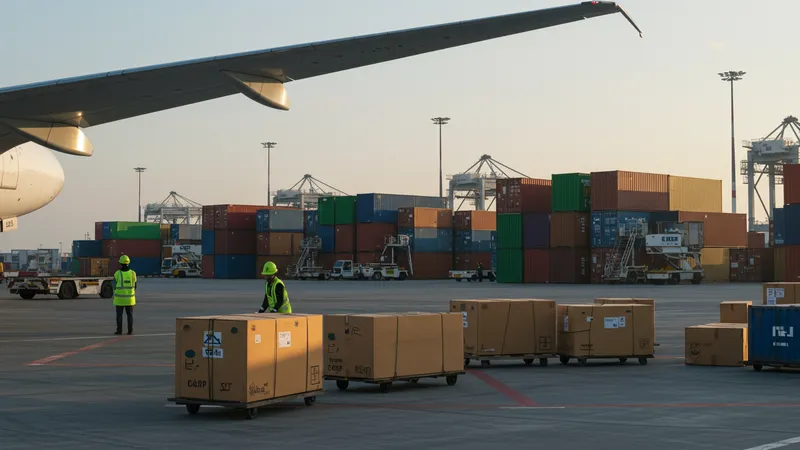
Brands have soared on the wings of air cargo, turning distant markets into frontiers of growth. This logistical prowess has enabled small businesses to thrive by capturing global markets previously unexplored. This empowerment is foundational, vital, yet often invisible to the untrained eye.
Travel routes continue to open, creating new consumer bases and democratizing high-quality products. Yet, as these markets grow, the foundational influence of air cargo parallels, reflecting an economy interwoven with dynamic logistical support that keeps momentum thriving.
The unseen economics extend beyond mere numbers; they possess the ability to adapt, create, and innovate synchronously with global shifts. This elasticity forms an emissions-free economic model, harmonizing air cargo with global expectations while hinting at future narratives yet untold.
The reliability and efficiency of air cargo are underpinned by real-time logistics management. This approach has refined operation strategies beyond traditional expectations, spearheading an era where insight is instant and adjustments are precise. Yet, its vast applications are little known.

This instantaneous analysis and response afford an advantage little acknowledged; ensuring they align operational execution with strategic demand. These real-time interventions remove logistical bottlenecks before they surface, offering a seamless logistic experience that is astonishing yet understated.
Moreover, these technologies provide a rigorous consistency to operations, presenting companies with high resilience against logistical disturbances. As businesses increasingly depend on heightened predictability, diving into the workings of these systems presents untapped territories of understanding.
The adoption and integration of real-time logistics management systems stand as testament to human ingenuity. In embracing these systems, the industry not only enhances trust but sketches a future of partnerships sculpted from predictability and transparency, sparking curiosity for a deeper dive.
Throughout its history, air cargo has been an arena of transformation and surprise. Each shipment, while consistent in intent, carries narratives of resilience, innovation, and unexpected stories of change. These tangible transformations enrich the invisible tapestry of global logistics.

From life-saving medications quickly reaching where medicines were scarce to rare artifacts safely crossing continents for preservation, air cargo holds stories of impact that exceed mere logistics. These narratives inspire and invoke curiosity about what cargo might transform next.
The stories of air cargo operators, as well, offer inspiration, as individuals navigate evolving skies and hub dynamics. They not only chronicle challenges but embody a commitment that resonates deeply with the industry’s heart, an often-unseen side of logistics.
Their evolutions inspire the broader logistics family, igniting exploration into systemic aspirations that might prompt change. These hidden stories sketch potential changes in trade flows and logistics that remain undisclosed, enticing exploration into unexplored potentials of the sky carriers.
Air cargo has silently become the powerhouse of global trade, defying its own confines and propelling commerce forward with unseen force. As the harbinger of rapid economic advances, air cargo's evolution is evident, its shadows cast far beyond the cargo hold. But what we've discovered is just the beginning...
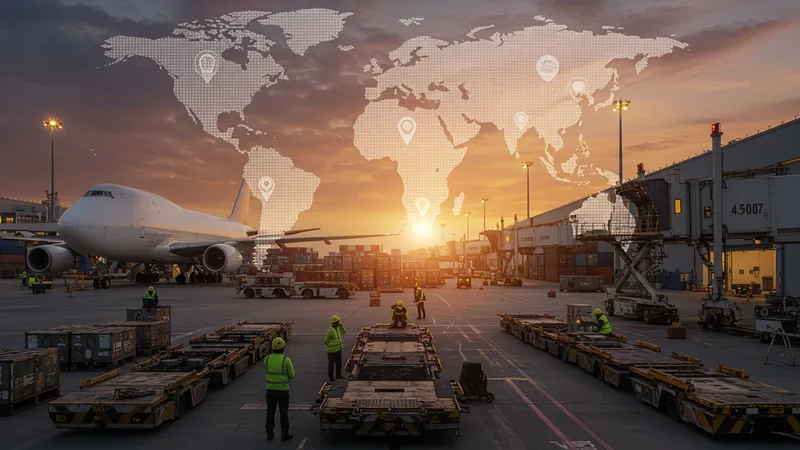
The dialogues surrounding logistics, trade, and environmental responsibility are far from finished. Their unfolding chapters hold the promise of remarkable potential awaiting the catalysts bold enough to explore. Air cargo may seem inconspicuous, yet its sway extends vastly, eagerly rewriting each new dawn of trade dynamics.
As economies flourish within these newly chartered skies, the formidable power of air cargo assures us of its vital force within the global framework. Thus, air cargo poises itself as the archway to future logistics, an invitation to next-level narrative crafting and solution building, beckoning us further.
Now, it's your turn to influence the story. Share this insight, spread the word, bookmark its evolution, for your understanding is the first step in an ever-evolving dynamic that demands recognition, engagement, and active contribution. Let's journey together into tomorrow’s logistics, enlightened by today’s revelations.